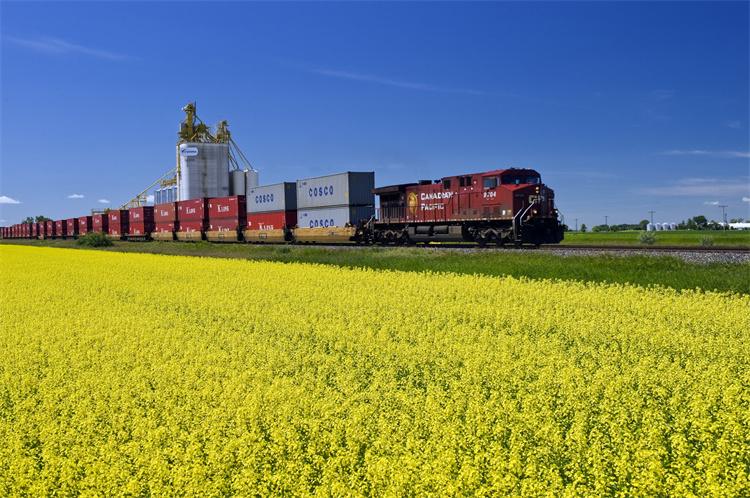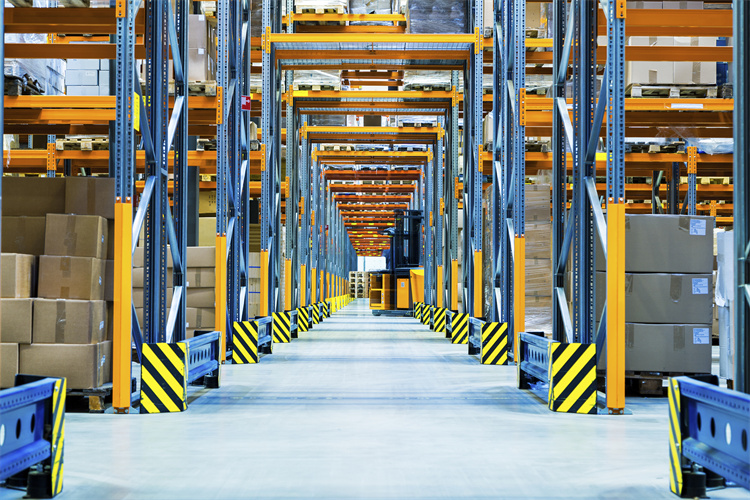China to Europe Railway’s Role in Global Stability

The china to europe railway has emerged as a transformative force in modern commerce. By connecting china and europe through an efficient rail network, it has redefined global trade dynamics. This railway offers faster transit times compared to traditional sea routes, with over 17,000 freight train trips recorded in 2023 alone. Trade between china and europe has flourished, growing from 4 trillion yuan in 2013 to 7.42 trillion yuan in 2022. Beyond economic benefits, the railway supports sustainable logistics by reducing carbon emissions, making it a vital link in stabilizing global supply chains.
Key Takeaways
The China-Europe Railway Express significantly reduces transit times, taking only 12 to 18 days compared to 30 to 45 days for maritime shipping, enhancing business competitiveness.
This railway offers a cost-effective solution for medium-value goods, being three times cheaper than air freight while providing faster delivery than sea freight.
JUSDA’s China-Europe Express Rail enhances reliability in freight transportation, minimizing delays and disruptions, which is crucial for industries requiring timely deliveries.
The railway fosters economic interconnectivity, boosting trade between China and Europe, with trade volumes increasing from 4 trillion yuan in 2013 to 7.42 trillion yuan in 2022.
By providing a greener alternative to air and sea transport, the railway supports global sustainability efforts, emitting significantly lower carbon emissions.
The railway opens new economic opportunities for landlocked regions, integrating them into global trade networks and promoting inclusive development.
Infrastructure projects like the China-Europe Railway Express exemplify how nations can collaborate to enhance global trade and address climate challenges.
Trade Efficiency: Transforming Global Logistics with the China-Europe Railway

Faster Transit Times Compared to Maritime Shipping
The China-Europe Railway Express has revolutionized the movement of goods between China and Europe by significantly reducing transit times. Traditional maritime shipping often requires 30 to 45 days to complete the journey. In contrast, the railway service achieves this in just 12 to 18 days. This remarkable speed provides businesses with a competitive edge, especially for industries that rely on timely delivery. For instance, electronic products and medical supplies benefit greatly from the faster transit times, ensuring that supply chains remain agile and responsive to market demands.
"Rail freight from China to Europe takes 14 days, much faster than sea transport. It is cost-effective, secure, reliable, and environmentally friendly."
This efficiency not only accelerates the flow of trade but also enhances the reliability of global logistics networks. By offering a quicker alternative, the railway ensures that businesses can meet tight deadlines and maintain customer satisfaction.
Cost-Effectiveness for Medium-Value Goods
The China-Europe Railway Express strikes a perfect balance between cost and speed, making it an ideal choice for transporting medium-value goods. While air freight offers the fastest delivery, its high costs often deter businesses from using it for all shipments. On the other hand, maritime shipping, though cheaper, involves longer transit times. The railway bridges this gap by providing a cost-effective solution that is three times cheaper than air freight and significantly faster than sea freight.
This cost-efficiency has made the railway a preferred option for industries such as clothing, small commodities, and automotive parts. Businesses can optimize their logistics expenses without compromising on delivery timelines. Additionally, the railway's ability to handle diverse types of goods further enhances its appeal to global trade participants.
Enhanced Reliability and Reduced Supply Chain Disruptions with JUSDA’s China-Europe Express Rail
JUSDA’s China-Europe Express Rail elevates the reliability of freight transportation. The service minimizes risks associated with delays and disruptions, which are common in maritime shipping due to weather conditions or port congestion. With a transit time of 15 to 20 days, JUSDA ensures consistent and predictable delivery schedules, enabling businesses to plan their operations more effectively.
The service also leverages JUSDA’s extensive network and expertise in intercontinental logistics. Smooth customs operations and efficient resource alignment reduce the likelihood of goods being stranded during transit. Furthermore, the integration of advanced technologies like real-time tracking enhances transparency, allowing businesses to monitor their shipments throughout the journey.
By offering a dependable and efficient logistics solution, JUSDA’s China-Europe Express Rail plays a pivotal role in stabilizing global trade. It supports businesses in maintaining robust supply chains, even in the face of geopolitical uncertainties or fluctuating market conditions.
Economic Interconnectivity: Strengthening Global Trade Ties
Bridging China and Europe Through the China-Europe Railway Express
The China-Europe Railway Express has become a vital link in fostering economic integration between Asia and Europe. By connecting major cities across both regions, it has transformed global trade. This extensive freight network enables the seamless movement of goods, reducing transit times and enhancing logistics efficiency. Over the years, bilateral trade volumes have surged, growing from 4 trillion yuan in 2013 to 7.42 trillion yuan in 2022. This growth underscores the railway's pivotal role in strengthening economic ties.
The railway's connectivity extends beyond commerce. It promotes cultural exchange by facilitating the movement of people and goods, exposing communities to diverse lifestyles and traditions. This cultural understanding further solidifies the partnership between China and Europe, creating a foundation for long-term collaboration. The China-Europe Railway Express exemplifies how infrastructure can drive not only economic growth but also mutual respect and cooperation.
Expanding Economic Opportunities for Landlocked Regions
The China-Europe Railway Express has opened new doors for landlocked regions, offering them access to global trade networks. These areas, often isolated from major shipping routes, now benefit from enhanced logistics solutions. The railway connects them to international markets, enabling local businesses to export goods efficiently and competitively.
For example, Central Asian countries along the railway corridor have experienced significant economic growth. The improved freight services have allowed these regions to diversify their economies, creating new opportunities for industries such as agriculture and manufacturing. By integrating these areas into the global supply chain, the railway fosters inclusive development and reduces regional disparities.
Boosting Regional Economies Along the Railway Corridor with JUSDA’s Expertise
JUSDA’s expertise in logistics has amplified the economic impact of the China-Europe Railway Express. By providing tailored solutions, JUSDA supports businesses along the railway corridor in optimizing their supply chains. Its advanced freight services ensure smooth customs operations and reliable delivery schedules, minimizing disruptions and delays.
The railway has revitalized regional economies by attracting investments and creating jobs. Cities along the route have become hubs for trade and logistics, driving local development. JUSDA’s role in this transformation highlights the importance of efficient logistics in unlocking economic opportunities. Through its innovative approach, JUSDA empowers businesses to thrive in the competitive landscape of global trade.
Geopolitical Implications: Diversifying Trade Routes for Global Stability
Reducing Dependence on Maritime Shipping Lanes
The China-Europe Railway Express has emerged as a vital alternative to traditional maritime shipping lanes. By offering faster transit times and reliable freight services, it reduces the global trade system's reliance on sea routes. Maritime shipping often faces challenges such as port congestion, unpredictable weather, and geopolitical tensions in key waterways. These factors can disrupt supply chains and delay the movement of goods.
The railway provides a stable and efficient solution. With its ability to transport freight between China and Europe in 15 to 20 days, it ensures timely delivery of goods. This reliability is particularly valuable for industries that require consistent schedules, such as electronics and medical supplies. The diversification of trade routes strengthens global logistics networks, minimizing risks associated with overdependence on maritime transport.
"The expansion of rail transport offers businesses a secure and efficient alternative, reducing vulnerabilities in global trade logistics."
By reducing dependence on sea lanes, the China-Europe Railway Express enhances the resilience of international trade systems. It ensures that businesses can maintain operations even during disruptions in maritime shipping.
Enhancing China's Influence in Europe and Central Asia
The China-Europe Railway Express plays a strategic role in strengthening China's presence in Europe and Central Asia. As a flagship project of the Belt and Road Initiative, it reflects China's commitment to fostering economic integration and enhancing regional connectivity. The railway connects over 120 cities in China with 219 cities across 25 European countries, creating a vast network that facilitates trade and collaboration.
This connectivity has significant geopolitical implications. By investing in infrastructure and logistics, China has positioned itself as a key player in global trade. The railway also benefits Central Asian countries along its route, providing them with new economic opportunities. These regions, often overlooked in global commerce, now play a crucial role in linking China and Europe.
The railway's impact extends beyond economics. It fosters diplomatic ties by promoting cooperation between nations. The shared interest in maintaining and expanding the railway strengthens partnerships, creating a foundation for long-term collaboration. This influence underscores the importance of infrastructure in shaping geopolitical dynamics.
Promoting Multilateral Cooperation Through Infrastructure Development
The development of the China-Europe Railway Express highlights the potential of infrastructure projects to drive multilateral cooperation. Governments and private sectors have invested heavily in expanding the railway network, reflecting a shared commitment to enhancing global connectivity. This collaboration has led to the creation of efficient freight corridors that support economic growth and stability.
The railway serves as a model for international partnerships. By aligning interests and pooling resources, participating countries have demonstrated the value of collective efforts in addressing logistical challenges. The success of the railway has inspired similar initiatives, encouraging further investments in infrastructure under the Belt and Road Initiative.
"Infrastructure projects like the China-Europe Railway Express exemplify how nations can work together to achieve shared goals in global trade and economic integration."
The railway's role in promoting cooperation extends to its environmental benefits. By offering a greener alternative to air and sea freight, it supports global efforts to combat climate change. This alignment of economic and environmental objectives strengthens the case for continued investment in sustainable infrastructure.
The China-Europe Railway Express not only enhances trade connectivity but also fosters collaboration among nations. Its success demonstrates the transformative power of infrastructure in uniting regions and driving progress.
Environmental and Sustainability Impact: A Greener Alternative for Global Trade

Lower Carbon Emissions Compared to Air and Sea Freight
Rail transport offers a significantly greener alternative for the transportation of goods compared to air and sea freight. The China-Europe Railway Express emits only a fraction of the carbon dioxide produced by other modes of transport. On average, its carbon emissions are 1/15 of air transport and 1/7 of road transport. This makes it an environmentally friendly choice for businesses seeking sustainable logistics solutions.
Modern trains on this route incorporate advanced technologies, such as energy-efficient engines and regenerative braking systems, which further reduce fuel consumption. Operators also optimize routes to minimize unnecessary travel, ensuring efficient energy use. These innovations contribute to the railway's low environmental footprint, making it a vital component in reducing the carbon impact of global trade.
"Rail freight emits far less CO2 than air and road transport, offering a sustainable solution for transporting goods across continents."
By prioritizing overland transportation through rail, the China-Europe Railway Express supports industries in meeting their sustainability goals while maintaining efficient logistics operations.
Supporting Global Efforts to Combat Climate Change
The China-Europe Railway Express plays a crucial role in global efforts to combat climate change. By providing a greener alternative for the transportation of goods, it aligns with international initiatives aimed at reducing greenhouse gas emissions. Rail freight consumes less energy per ton-kilometer than road or air transport, making it a more sustainable option for global supply chains.
This railway service also encourages businesses to adopt eco-friendly practices. Companies that rely on the railway for transporting goods can significantly lower their carbon footprints, contributing to broader environmental objectives. The shift from high-emission transport modes to rail freight demonstrates how infrastructure can drive meaningful progress in addressing climate challenges.
"The China-Europe Railway Express exemplifies how sustainable logistics can support global climate goals while maintaining economic efficiency."
Through its commitment to reducing emissions, the railway not only enhances connectivity between China and Europe but also reinforces the importance of sustainable development in global trade.
Encouraging Sustainable Development Along the Railway Route
The China-Europe Railway Express fosters sustainable development in regions along its route. By connecting cities and communities, it creates new economic opportunities while promoting environmentally responsible practices. Landlocked areas, often excluded from major trade networks, now benefit from improved logistics and access to global markets.
The railway's development has spurred investments in green infrastructure, such as energy-efficient terminals and renewable energy-powered facilities. These advancements support local economies while minimizing environmental degradation. Additionally, the railway encourages industries along its corridor to adopt sustainable practices, further amplifying its positive impact.
"Sustainable development along the railway route highlights the potential of infrastructure to balance economic growth with environmental stewardship."
By integrating sustainability into its operations, the China-Europe Railway Express sets a benchmark for future overland transportation projects. Its success demonstrates how logistics can drive both economic growth and environmental preservation.

JUSDA Solutions
To provide you with professional solutions and quotations.
The China-Europe Railway Express has redefined global trade by offering efficient, reliable, and cost-effective logistics solutions. Its ability to connect China and Europe with faster transit times and reduced costs has made it a cornerstone of modern commerce. By fostering economic interconnectivity, the railway strengthens supply chains and supports industrial growth in regions along its route. Its low carbon emissions and sustainable practices align with global efforts to combat climate change. As a transformative force, the China-Europe Railway Express exemplifies how innovative infrastructure can shape the future of international trade and drive global stability.
See Also
Overcoming Global Supply Chain Growth Obstacles Today
The Importance of Supply Chains in Global Commerce
Enhancing E-commerce Success Through Supply Chain Transparency
Preparing for Innovations in Supply Chain Transport Technology
